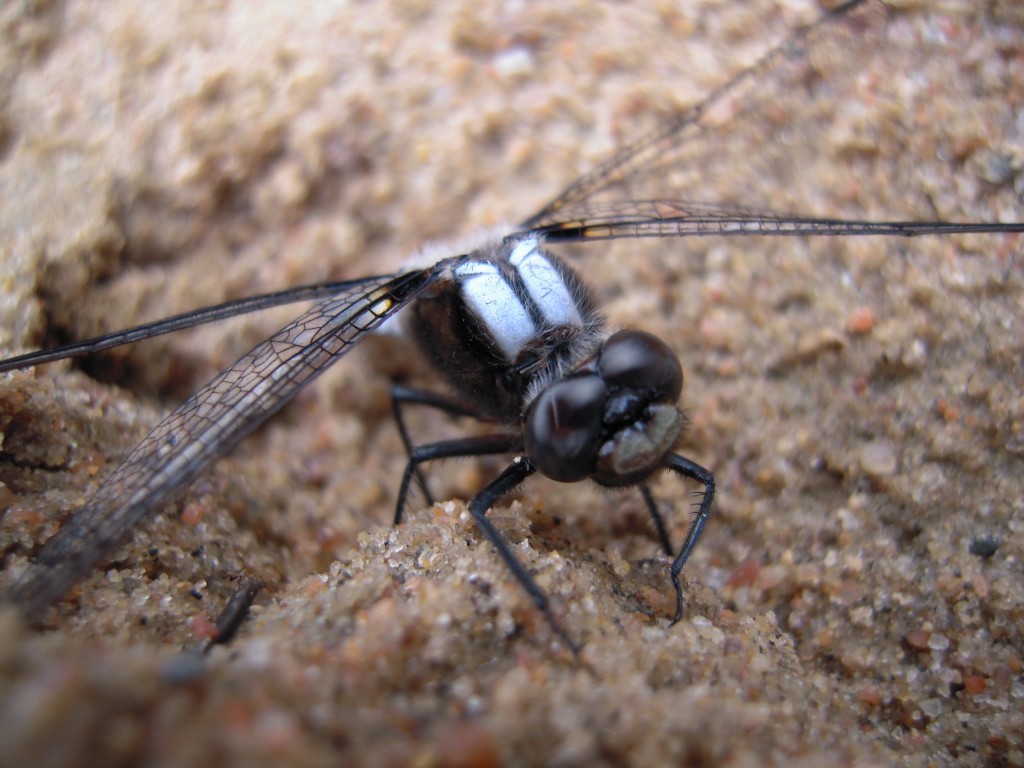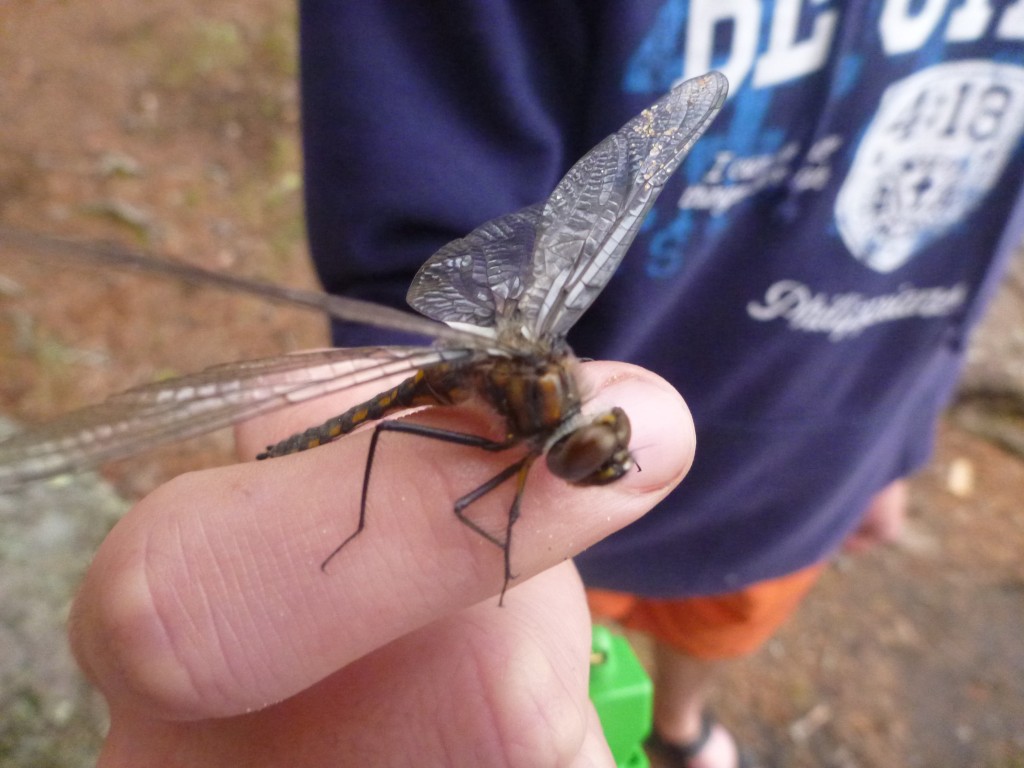This is the fifth instalment of our weekly Red Rock Faith Talks from the staff at RRBC. Every Monday in May and June, the blog will feature a post from a current Red Rock staff member sharing what’s on their heart, and what God is challenging them with. This week, Jayelle Friesen talks about The Parable of the Sower, and how that relates to the life of a dragonfly.
Matthew 13:1-9
That same day Jesus went out of the house and sat by the lake. Such large crowds gathered around him that he got into a boat and sat in it, while all the people stood on the shore. Then he told them many things in parables, saying:
“A farmer went out to sow his seed. As he was scattering the seed, some fell along the path, and the birds came and ate it up. Some fell on rocky places, where it did not have much soil. It sprang up quickly, because the soil was shallow. But when the sun came up, the plants were scorched, and they withered because they had no root. Other seed fell among thorns, which grew up and choked the plants. Still other seed fell on good soil, where it produced a crop – a hundred, sixty, or thirty times what was sown. He who has ears, let him hear.”
Just a few weeks ago, we got to observe an interesting natural phenomenon here at camp: dragonflies. Maybe dragonflies do not sound terribly interesting or important enough to write about on the blog, but just keep reading and hopefully you will see how this relates to life.
In a matter of days we went from having almost no dragonflies to speak of at camp, to seeing literal clouds of them darting about through the air. Starting on Friday, the lake looked like it had been taken over by a sudden infestation of ugly, wingless dragonfly-like creatures. By Saturday afternoon everything along the shoreline – rocks, trees, docks, boats, and buildings both inside and out – was covered with these insects. You could not move without almost stepping on at least ten of these bugs.
Then, as suddenly as they had appeared, all motion ceased as the insects clung to whatever surface they had found and slowly started to dry out and shrivel up. It seemed as if they had all come out of hiding and covered the waterfront just to sit there and wait for death. However, if you looked closely, a change was taking place. Yes, the outer shell of the insects had indeed died, but there was life taking form deep on the inside. In the following days the air was soon filled with newly emerged dragonflies that had left their ugly, lifeless, and wingless shells scattered across the ground in order to take on a new and more beautiful form.
This whole process was exciting for many of us staff, because it meant that all the pesky flies that have been biting us incessantly since the beginning of spring were now being consumed by hundreds of our new dragonfly friends. But I hope that some of my observations will make you think about another positive side to dragonflies.
A full week after the dragonflies had hatched, I took a little kayak trip out across the lake and discovered some interesting things. Out of all the dragonflies that had hatched, only a fraction of them were actually flying.
Some dragonflies had decided to emerge from their shells right onto a path, where they were inevitably stepped on and squashed to bits by students from the school group.
Other dragonflies that had found their way into buildings like the beach hut or the kayak shack were still sitting there a week after crawling out of their shells. Even though they had wings and should have been able to fly they were hidden from the warmth and light of the sun, so in the dark they remained.
Still others had somehow ended up in the lake. I kayaked past dozens of struggling dragonflies trapped on the surface of the water, weighed down by their waterlogged wings and unable to escape. And of course, as I kayaked back to camp there were still droves of dragonflies flying around above my head, doing exactly what they had been created to do and eating up all the bugs.
Matthew 13:18-23
“Listen to what the parable of the sower means: When anyone hears the message about the kingdom and does not understand it, the evil one comes and snatches away what was sown in his heart. This is the seed sown along the path. The one who received the seed that fell on rocky places is the man who hears the word and at once receives it with joy. But since he has no root, he lasts only a short time. When trouble or persecution comes because of the word, he quickly falls away. The one who received the seed that fell among the thorns is the man who hears the word, but he worries of this life and the deceitfulness of wealth choke it, making it unfruitful. But the one who received the seed that fell on good soil is the man who hears the word and understands it. He produces a crop, yielding a hundred, sixty or thirty times what was sown.”
I find it amazing how creation constantly points us to truths about God and his word. The more I thought about the dragonflies, the more I was reminded of Jesus’ parable of the sower in Matthew 13.
Just like the seeds that fell on the path and were snatched up by birds, many of the dragonflies ended up on the path where they were stepped on by people.
The seeds that fell on rocky soil were able to sprout up quickly, but their shallow root system did not allow them to last long. In the same way, the dragonflies inside the kayak shack still emerged from their shells and spread out their wings, but with no source of warmth or light they could not function properly and would not last.
Similar to the seeds that grew up and got choked by thorns, making it unfruitful, many of the dragonflies became trapped by the water and could no longer fly.
Yet many dragonflies were transformed from the ugly, lifeless shells of their old nature to ascend into the air and fly about just as they were created to do. “Still other seed fell on good soil, where it produced a crop – a hundred, sixty or thirty times what was sown. He who has ears, let him hear.”
Is God’s word producing a fruitful crop in your life? Or are you being choked by the stress and worries of life? Does your root system go down deep so that you can withstand hardships? The story of these dragonflies and Jesus’ parable of the sower teaches us the importance of not only receiving God’s word, but letting it work in your life to transform and change you so that you will bear much fruit. Spend time getting rooted in God’s word and allow him to work in you so that your life will bear fruit and glorify him.
John 15:1-2, 8
“I am the true vine, and my Father is the gardener. He cuts off every branch in me that bears no fruit, while every branch that does bear fruit he prunes so that it will be even more fruitful… This is to my Father’s glory, that you bear much fruit, showing yourselves to be my disciples.”


